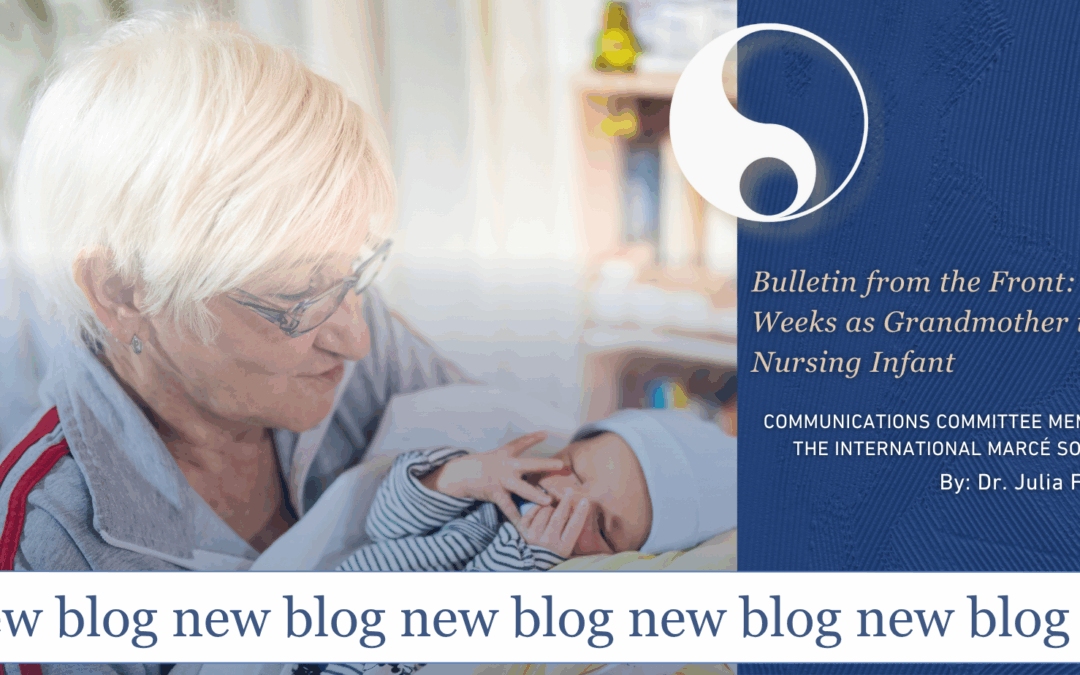Bulletin from the Front: Six Weeks as Grandmother to a Nursing Infant.
Sleep deprived and covered in baby body fluids, I remember viscerally that all newborns are anarchists. Being a parent emeritus—aka a grandmother—is hardly a sinecure. With the safety net for mothers and babies currently under assault, the number of single parent households increasing, inadequate maternity, leave, and rising adolescent pregnancies, we should recognize that grandparents, especially grandmothers or grandmothers in law, may play an important role in mothers’ and infants’ social and psychological ecologyi.
Research on grandparental care is scarce and mostly focused on measurable outcomes like infant weight gain. Yet the depth and texture of the relationship between a mother and her mother may be as important as that between the mother and father of a child. We do know that a woman’s troubled prior relationship with her own mother is a significant risk factor for perinatal depression. The obverse, that a strong or newly repaired mother-mother relationship, could be protective, has slipped from view.
The roles and expectations for grandparenting vary across cultures and social class. A grandmother working full-time or living far away may do little to welcome a new baby. In contrast, an acculturated Chinese woman I was treating for perinatal depression described how her Chinese mother-in-law insisted she spend 6 weeks in bed while the mother in law took over the care of the infant. My patient, already ambivalent, never bonded with her child and allowed her husband’s family to take him back to China. During the international Marcé meeting in India, I was impressed that women with post-partum psychosis were hospitalized together with their mothers and infants so that as they recovered, they could be fully reintegrated into their families.
The devaluation of grandparents’ input is wired into our safety obsessed, material culture at least for fairly affluent families. My daughter and son-in-law turn first to the internet and then to Target or Costco when they need help. OK. I admit it. My children slept on their stomachs in cribs lined with pillows; before we had air bags, I placed their infant seats next to the driver. I certainly support adherence to the best safety and vaccine advice, but my child’s own survival conveys the valuable message that imperfect parenting is good enough.
The impact of the parent-grandparent relationship may be less about whether it is objectively “good” or “bad” but whether the parties have congruent expectations, based on their own experience, supported by the surrounding culture, for what should happen during early parenthood, and after. Recognizing the importance of grandparenting suggests new opportunities for support, advocacy, research, and education to complement our current, medicalized views of how to help new mothers thrive.
By: Dr. Julia Frank, The International Marcé Society Communications Committee

